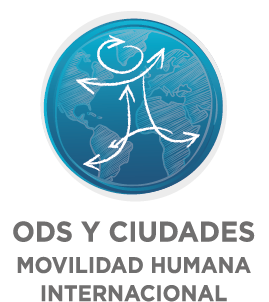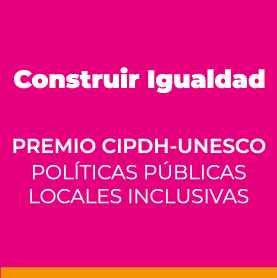
- Region
- Latin America and the Caribbean
- Range of Demographic Size
- 1,000,000 inhabitants or more (metropolis)
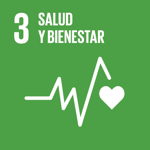
3.7 By 2030, ensure universal access to sexual and reproductive health-care services, including for family planning, information and education, and the integration of reproductive health into national strategies and programmes.
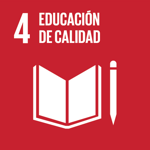
4.1 By 2030, ensure that all girls and boys complete free, equitable and quality primary and secondary education which must be free, equitable and of quality and leading to relevant and effective learning outcomes.
4.5 By 2030, eliminate gender disparities in education and ensure equal access to all levels of education and vocational training for the vulnerable, including persons with disabilities, indigenous peoples and children in vulnerable situations.
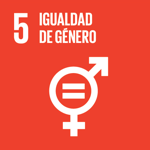
5.1 End all forms of discrimination against all women and girls everywhere in the world.
5.2 Eliminate all forms of violence against all women and girls in the public and private spheres, including trafficking and sexual and other types of exploitation.
5.5 Ensure women’s full and effective participation and equal opportunities for leadership at all levels of decision-making in political, economic and public life.
5.6 Ensure universal access to sexual and reproductive health and reproductive rights as agreed in accordance with the Programme of Action of the International Conference on Population and Development and the Beijing Platform for Action and the outcome documents of their review conferences.
5.a Undertake reforms to give women equal rights to economic resources, as well as access to ownership and control over land and other forms of property, financial services, inheritance and natural resources, in accordance with national laws.
5.b Enhance the use of enabling technology, in particular information and communications technology, to promote the empowerment of women.
5.c Adopt and strengthen sound policies and enforceable legislation for the promotion of gender equality and the empowerment of all women and girls at all levels.
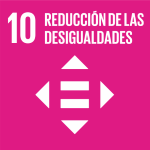
10-2 By 2030, empower and promote the social, economic and political inclusion of all, irrespective of age, sex, disability, race, ethnicity, origin, religion or economic or other status.
10.3 Ensure equal opportunity and reduce inequalities of outcome, including by eliminating discriminatory laws, policies and practices and promoting appropriate legislation, policies and action in this regard.
10.4 Adopt policies, especially fiscal, wage and social protection policies, and progressively achieve greater equality.
D - Universal access to sexual and reproductive health services
E - Gender equality
• Inter-American Convention on the Prevention, Punishment, and Eradication of Violence against Women (Convention of Belém do Pará)
Summary
The Gender Equality Public Policy for Urban and Rural Women of Medellín appeared in 2003. The purpose is to ensure equal opportunities for women, for the effective enjoyment of their rights. In 2018, after an evaluation, the Policy was restated in the light of multiple social, technological, economic and political changes. The new Policy set up six dimensions: Economic Autonomy, Education, Social and Political Participation, Health, Safety and Life free of Violence, and Peace.
The entity in charge of this policy is the Secretariat of Women, with its own resources. The main actions of the Secretariat are care for violence victims, awareness, actions for permanence in the school system, economic grants, training and linkage to peace pedagogy processes.
The Policy has accountability, evaluation and result publication mechanisms.
Implementation Date:
Start: 08 / 1 / 2003
End: End: Currently in force
Seminars/events
Advice
Financial/legal/technical assistence
Creation of entity/plan/programme
International organization
- Web: https://www.medellin.gov.co/irj/portal/medellin?NavigationTarget=navurl://bd3530c64bcd0656a1bc6e28c0a4d0bc
- Telephone: (Español) (574) 44 44 144
- Social Network:
Instrumentos

3.7 By 2030, ensure universal access to sexual and reproductive health-care services, including for family planning, information and education, and the integration of reproductive health into national strategies and programmes.

4.1 By 2030, ensure that all girls and boys complete free, equitable and quality primary and secondary education which must be free, equitable and of quality and leading to relevant and effective learning outcomes.
4.5 By 2030, eliminate gender disparities in education and ensure equal access to all levels of education and vocational training for the vulnerable, including persons with disabilities, indigenous peoples and children in vulnerable situations.

5.1 End all forms of discrimination against all women and girls everywhere in the world.
5.2 Eliminate all forms of violence against all women and girls in the public and private spheres, including trafficking and sexual and other types of exploitation.
5.5 Ensure women’s full and effective participation and equal opportunities for leadership at all levels of decision-making in political, economic and public life.
5.6 Ensure universal access to sexual and reproductive health and reproductive rights as agreed in accordance with the Programme of Action of the International Conference on Population and Development and the Beijing Platform for Action and the outcome documents of their review conferences.
5.a Undertake reforms to give women equal rights to economic resources, as well as access to ownership and control over land and other forms of property, financial services, inheritance and natural resources, in accordance with national laws.
5.b Enhance the use of enabling technology, in particular information and communications technology, to promote the empowerment of women.
5.c Adopt and strengthen sound policies and enforceable legislation for the promotion of gender equality and the empowerment of all women and girls at all levels.

10-2 By 2030, empower and promote the social, economic and political inclusion of all, irrespective of age, sex, disability, race, ethnicity, origin, religion or economic or other status.
10.3 Ensure equal opportunity and reduce inequalities of outcome, including by eliminating discriminatory laws, policies and practices and promoting appropriate legislation, policies and action in this regard.
10.4 Adopt policies, especially fiscal, wage and social protection policies, and progressively achieve greater equality.
D - Universal access to sexual and reproductive health services
E - Gender equality
• Inter-American Convention on the Prevention, Punishment, and Eradication of Violence against Women (Convention of Belém do Pará)
Location
- Region
- Latin America and the Caribbean
- Range of Demographic Size
- 1,000,000 inhabitants or more (metropolis)
Contact details
- Email:
- Web: https://www.medellin.gov.co/irj/portal/medellin?NavigationTarget=navurl://bd3530c64bcd0656a1bc6e28c0a4d0bc
- Telephone: (Español) (574) 44 44 144
- Social network:


